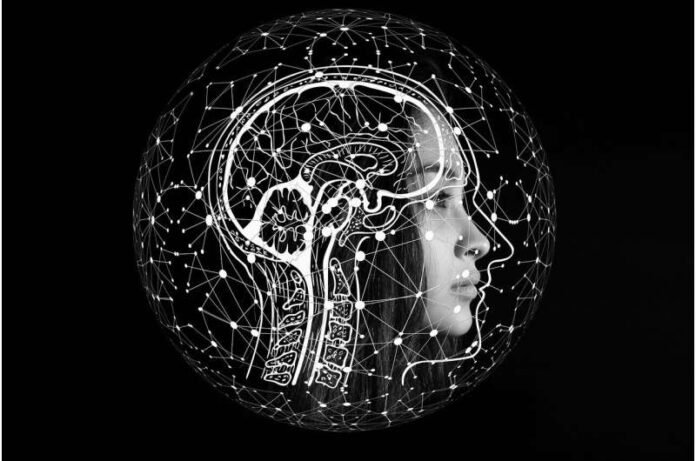Credit: CC0 Public domain
The interaction between humans and artificial intelligence is shaping a new thinking system, a new cognitive scheme, outside the human mind, but capable of augmenting its cognitive abilities.
This is called System 0, which works alongside the two models of human thinking: System 1, characterized by intuitive, fast and automatic thinking, and System 2, a more analytical and reflective way of thinking. However, System 0 introduces an additional level of complexity, radically changing the cognitive landscape in which we operate, and thus could represent a monumental step forward in the evolution of our ability to think and make decisions.
It will be our responsibility to ensure that these advances will be used to improve our cognitive autonomy without compromising it.
The magazine reports this Nature Human behaviorin an article entitled “The case for human-AI interaction as System 0 thinking”, written by a team of researchers led by Professor Giuseppe Riva, director of the Humane Technology Lab on the campus of the Università Cattolica in Milan and the Applied Technology for Neuropsychology Lab at Istituto Auxologico Italiano IRCCS, Milan, and by Professor Mario Ubiali from the Brescia campus of the Università Cattolica.
The research was led by Massimo Chiriatti of the Infrastructure Solutions Group, Lenovo, in Milan, Professor Marianna Ganapini of the Department of Philosophy at Union College, Schenectady, New York, and Professor Enrico Panai of the Università’s Faculty of Foreign Languages and Linguistics. Cattolica’s campus in Milan.
A new form of external thinking
Just as an external drive allows us to store data that is not present on the computer, we can work by connecting our drive to a PC wherever we are. Artificial intelligence, with its galactic processing and data processing capabilities, can provide an external circuit to the human brain that can improve it. Hence the idea of System 0, which is essentially a form of ‘external’ thinking that relies on the capabilities of AI.
By managing massive amounts of data, AI can process information and provide suggestions or decisions based on complex algorithms. However, unlike intuitive or analytical thinking, System 0 does not attribute intrinsic meaning to the information it processes. In other words, AI can perform calculations, make predictions, and generate responses without truly “understanding” the content of the data it is working with.
People must therefore interpret and give meaning to the results produced by AI. It’s like having an assistant that efficiently collects, filters and organizes information, but still requires our intervention to make informed decisions. This cognitive support provides valuable input, but ultimate control must always remain in human hands.
The risks of System 0: Loss of autonomy and blind trust
“The risk,” professors Riva and Ubiali emphasize, “is that we rely too much on System 0 without critical thinking. If we passively accept the solutions that AI offers, we may lose our ability to think autonomously and develop innovative ideas. automated world, it is crucial that people continue to question and challenge the results generated by AI,” the experts emphasize.
Moreover, transparency and trust in AI systems pose another major dilemma. How can we be sure that these systems are free from bias or distortion and that they provide accurate and reliable information? “The growing trend of using synthetic or artificially generated data could compromise our perception of reality and negatively influence our decision-making processes,” the professors warn.
AI could even hijack our introspective abilities. They note that reflecting on one’s thoughts and feelings is a uniquely human process. However, with the advancement of AI, it may become possible to rely on intelligent systems to analyze our behavior and mental states. This begs the question: to what extent can we truly understand ourselves through AI analysis? And can AI replicate the complexity of subjective experiences?
Despite these questions, System 0 also offers enormous opportunities, the professors emphasize. Thanks to its ability to process complex data quickly and efficiently, AI can support humanity in tackling problems that are beyond our natural cognitive capabilities. Whether solving complex scientific problems, analyzing huge data sets or managing complex social systems, AI can become an indispensable ally.
To realize the potential of System 0, the study authors suggest that it is urgent to develop ethical and responsible guidelines for its use. “Transparency, accountability and digital literacy are key elements to enable people to critically interact with AI,” they warn. “Educating the public on how to navigate this new cognitive environment will be critical to preventing the risks of over-reliance on these systems.”
They conclude that System 0, if left unchecked, could disrupt human thinking in the future. “It is essential that we remain conscious and critical in the way we use it; the true potential of System 0 will depend on our ability to steer it in the right direction.”
More information:
The case for human-AI interaction as System 0 thinking, Nature Human behavior (2024). www.nature.com/articles/s41562-024-01995-5
Provided by Catholic University of the Sacred Heart
Quote: System 0: Does artificial intelligence create a new way of thinking, an external thought process outside our minds? (2024, October 22) retrieved October 22, 2024 from https://techxplore.com/news/2024-10-artificial-intelligence-external-thought-minds.html
This document is copyrighted. Except for fair dealing purposes for the purpose of private study or research, no part may be reproduced without written permission. The content is provided for informational purposes only.





